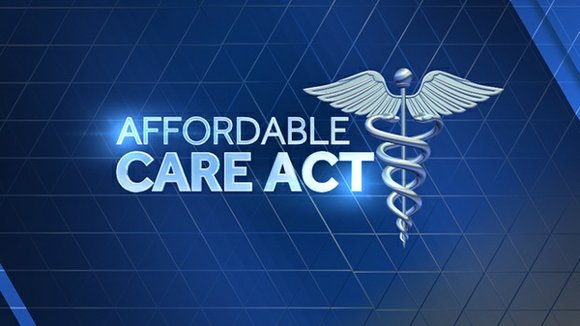How Democrats Will Use the GOP Health Care Bill Against Republicans in 2018
CNN/Stylemagazine.com Newswire | 3/15/2017, 7:56 a.m.
By Dan Merica
CNN
WASHINGTON (CNN) -- Democrats, armed with new numbers outlining the millions of Americans expected to be uninsured if the Republican health care plan goes into effect, are finally back on offense.
They are starting to formulate plans to target three different groups of at-risk Republicans lawmakers: Those running in areas Hillary Clinton won in 2016, those campaigning in states with a high number of senior voters and those in states whose governors decided to expand Medicaid under the 2010 Affordable Care Act.
The last two groups are a direct result of the opportunity provided by Monday's non-partisan evaluation of the GOP's repeal and replace Obamacare plan, which shows seniors and the poor suffering the most, including potentially devastating Medicaid cuts that could cause headaches for Republican governors.
The trio of targets will make up the thrust of Democrats 2018 health care argument, according to CNN interviews with about a half-dozen Democratic campaign strategists and aides.
GOP weakness
It is still early in the process and Democrats have yet to recruit candidates in most of the targeted races. But Democrats are cheered by a series of polls and focus groups showing health care animates swing voters to their side more than other issues, including White House initiatives such as building a costly Southern border wall and the travel ban initiated against six Muslim majority countries.
The Republican health care plan, which has White House support, received a damaging score from the Congressional Budget Office Monday. The report found 14 million more people would be uninsured by 14 million in 2018 and 24 million by 2026.
Most damaging in the eyes of some Democrats is the finding there would be a steep premium hike for older people with lower incomes. A 64-year-old making $26,500 would pay $1,700 for coverage in 2026 under Obamacare, thanks to its subsidies -- but under the GOP plan, that person would get hit with a annual premium bill of $14,600.
The GOP proposal would cut also Medicaid, a federal program administrated by states that provides health coverage to low-income Americans, by $880 billion over 10 years.
"I am not trying to be too cute here, but House Republicans have truly constructed a bill that offends every important group," said Tyler Law, spokesman for the Democratic Congressional Campaign Committee. "I do think it is fair to take it to the bank that we will be talking about this through 2018."
The prospective messaging has also infused previously downbeat Democrats with a boost of confidence in the wake of their disappointing 2016, which left them out of power in both the House and Senate and Republican Donald Trump in the White House.
The map
In the House, there are eight Republicans in congressional districts that Clinton won who also have already cast preliminary votes of approval for the GOP health plan because of the committees they sit on.
Reps. Leonard Lance in New Jersey, Ryan Costello in Pennsylvania, Mimi Walters in California, Erik Paulsen in Minnesota, Peter Roskam in Illinois, Carlos Curbelo in Florida, Pat Meehan in Pennsylvania and Dave Reichert in Washington each sit on either the Energy and Commerce Committee or the Ways and Means Committee and voted last week to back the bill.
Though most of these races don't yet have Democratic candidates, the DCCC has already begun working with local politicians to stress the need to push voters over the health care votes.
"From a purely political standpoint, you are talking about a lot of vulnerable Republicans who have already voted on it," said one operative tasked with winning back the House,
Already, several Republicans are feeling the pressure over health care.
Lance, one of the vulnerable Republicans who represents a district Clinton won in northern New Jersey, told reporters Tuesday that the Republican bill wouldn't make it through the Senate and wouldn't be worth supporting.
"I do not want to vote on a bill that has no chance of passing over in the Senate," Lance said.
Rep. Ileana Ros-Lehtinen, a Florida Republican from a district Clinton won, also announced on Tuesday that she wouldn't back the Republican bill.
"I plan to vote NO on the current #AHCA bill. As written the plan leaves too many from my #SoFla district uninsured," she tweeted.
No worries
National Republicans heading up the midterm campaigning say the targeted members, some of whom have long represented Democratic districts with a localized-style of Republicanism, will be just fine.
"These particular members of Congress were in the cross hairs this past cycle ... these guys have been targeted by the DCCC right along and they have proven they can separate themselves," said Jesse Hunt, a spokesman for the National Republican Congressional Committee.
"We have run on repealing and replacing Obamacare. We have won on that issue. All that Republicans are doing right now are fulfilling a promise they made to the Republican people," he added.
Seniors in play
On the Senate side, Democrats told CNN they see opportunities to message directly to older voters in states with 2018 elections such as Arizona, Nevada, Florida and Maine.
"This is moving from theoretical conversations about what the plan would potentially do, to a very real impact on seniors where they could be forced to pay up to five times for care," said one Democratic aide tasked with winning back the Senate.
The aide added Democrats expect the predicted rate hikes could be felt on seniors right before voters go to the polls making the message resonate even more.
Republican Sens. Jeff Flake of Arizona and Dean Heller of Nevada are of particular interest to Democrats. Both their states have a sizable number of senior voters, and were fertile ground for Clinton -- she won Nevada and lost Arizona by just 4%. Voters 65 and older backed Trump over Clinton nationally by 7% in 2016, according to exit polls. In Arizona, that number was a more stark -- 13%. But in Nevada, Clinton won seniors by 5%.
Florida and Maine, meanwhile, are two of the oldest states by population.
Democrats are hopeful that concerted messaging will mean their candidates -- both Senate and House -- could turn out seniors, a reliable voting bloc even in off-year elections. On average, voters over 65 make up close to 20% of voters in midterms, more than their share in presidential elections.
Medicaid expansion states
Then there are states that expanded Medicaid, which, under the Republican plan, would see their funding go down due to both cuts and changes in how federal monies will be allocated.
Democrats plan to push Republican candidates in Nevada, Indiana, Pennsylvania and Ohio, which both expanded Medicaid and have 2018 Senate races.
The GOP plan, according to experts, would likely endanger Medicaid funding for issues like drug treatment and mental health rehabilitation.
Richard G. Frank, a professor of Health Economics at Harvard University, told CNN that since the new plan would allow states more flexibility but pare back their funding, states are forced to choose to continue the existing services at their own expense or make cuts.
"Historically, states have been loath to cover substance abuse treatment," he said.
Some Republicans have already expressed concerns over this aspect of the plan.
"Don't kill Medicaid expansion," Ohio Gov. John Kasich said earlier this month. "Here's what we're talking about: If you're drug addicted, if you're mentally ill, you have to consistently see the doctor. From what I see in this House bill, the resources are not there."
Sen. Chris Van Hollen, chair of the Democratic Senatorial Campaign Committee, told CNN Tuesday that stripping Medicaid funding from states will be a top issue in 2018.
"The Republican plan is one broken promise after another, forcing older Americans to pay as much as five times more for their care and stripping Medicaid funding that states from West Virginia to Arizona use to fight the opioid epidemic," Van Hollen said. "In every Senate campaign, we will make sure voters know that Republicans will make you pay more for less care so that the insurance companies and rich can profit."
Repeal as 'disaster'
The focus on health care, especially in states with vulnerable Republicans, also fits with the message testing Democrats are already doing for the 2018 midterms.
Groups -- including American Bridge, the liberal super PAC and opposition research firm led by longtime Clinton adviser David Brock -- have found out through polls and focus groups that voters who backed Obama in 2008 but Trump in 2016 are more swayed by Trump's plans to repeal the Affordable Care Act than they are by other issues.
Longtime Democratic operative James Carville bluntly told donors at an American Bridge summit in Florida earlier this year: "The mover on health care loses; to do something is to lose."
That logic accounts for the backlash Democrats felt after passing Obamacare and the pain they hope to inflict on Republicans in 2018.
"The Republican plan to repeal Obamacare is a disaster that is going to be a political liability in 2018," Brock said. "Bigly."
CNN's MJ Lee contributed to this report.









